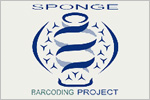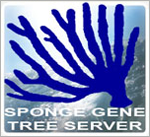Research » Biomineralization
Biomineralization refers to the processes by which organisms form minerals under biological control. Skeletons of multicellular organisms are formed by a process called biologically controlled mineralization and are often integral and functional parts of the organisms – and skeletal remains are frequently the only tangible evidence of organisms that remain in the fossil record.
The highly (enzymatically) regulated process of biologically controlled mineralization is responsible for the production of materials such as bones, shells, and teeth, some of which show exceptional strength and beauty, often of high commercial value (i.e. pearls). Ongoing research in our lab investigates how organisms form their calcareous skeleton and which genetic mechanisms control mineral deposition. We are also interested in the evolutionary aspects of the diversification of calcareous biomineralization in the Metazoa as well as assessing the effects of global (climate) change and ocean acidification on calcifying organisms in controlled mesocosm experiments.
Biomineralization refers to the processes by which organisms form minerals under biological control. Skeletons of multicellular organisms are formed by a process called biologically controlled mineralization and are often integral and functional parts of the organisms – and skeletal remains are frequently the only tangible evidence of organisms that remain in the fossil record.
The highly (enzymatically) regulated process of biologically controlled mineralization is responsible for the production of materials such as bones, shells, and teeth, some of which show exceptional strength and beauty, often of high commercial value (i.e. pearls). Ongoing research in our lab investigates how organisms form their calcareous skeleton and which genetic mechanisms control mineral deposition. We are also interested in the evolutionary aspects of the diversification of calcareous biomineralization in the Metazoa as well as assessing the effects of global (climate) change and ocean acidification on calcifying organisms in controlled mesocosm experiments.
Key publications:
Conci, N., Griesshaber, E., Rivera-Vicéns, R.E., Schmahl, W.W., Vargas, S., Wörheide, G., 2024. Molecular and mineral responses of corals grown under artificial Calcite Sea conditions. Geobiology 22 (1), e12586.
Conci, N., Vargas, S., Wörheide, G., 2021. The biology and evolution of Calcite and Aragonite Mineralization in Octocorallia. Frontiers in Ecology and Evolution 9, 81.
Conci, N., Lehmann, M., Vargas, S., Wörheide, G. 2020. Comparative proteomics of octocoral and scleractinian skeletomes and the evolution of coral calcification. Genome Biology and Evolution: evaa162.
Conci, N., Wörheide, G., Vargas, S., 2019. New non-bilaterian transcriptomes provide novel insights into the evolution of coral skeletomes. Genome Biology and Evolution 11:3068–3081.
González-Pech, R. A., Vargas, S., Francis, W. R., & Wörheide, G. 2017. Transcriptomic resilience of the Montipora digitata holobiont to low pH. Frontiers in Marine Science 4: 403.
Jackson, D. J., Macis, L., Reitner, J., Degnan, B. M., & Wörheide, G. 2007. Sponge Paleogenomics Reveals an Ancient Role for Carbonic Anhydrase in Skeletogenesis. Science 316(5833): 1893-1895.
Favourite Links
Projects





